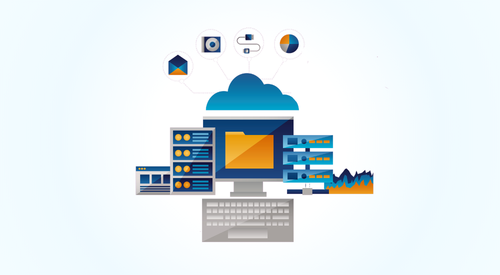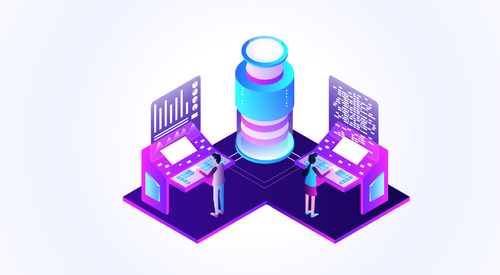

Singapore’s tech scene is a roaring engine of innovation. Companies are constantly pushing boundaries, demanding applications that are not only powerful but also adaptable and resilient. Cloud-native development plays a crucial role here, offering a revolutionary approach to building software specifically designed to thrive in the dynamic world of cloud computing.
Start the Cloud Journey: Contact Niveus Solutions
The country boasts a world-class IT infrastructure, with robust connectivity and a strong emphasis on cloud adoption. Major cloud providers like AWS, Azure, and GCP all have a presence in Singapore, offering regional data centers and unparalleled scalability. Furthermore, Singapore is home to a highly skilled developer pool that is well-versed in cloud technologies. Government initiatives and grants further incentivize cloud adoption.
Cloud-Native Applications – Building for Agility and Scale
Cloud-native development signifies a major shift in the way businesses build and deploy applications. It’s not just about moving existing software to the cloud but about using cloud platforms’ capabilities to create more agile, scalable, and resilient applications. Here are the core tenets of this approach. Let’s delve deeper into the core tenets of this approach.
- Microservices Architecture: Instead of a single monolithic application, cloud-native development constructs applications from independent units called microservices. Each microservice handles a specific business function, like user authentication or shopping cart processing, similar to modular apartments within a complex, each with distinct functionality but connected through defined interfaces.
- Containerization: Here’s where things get interesting. These microservices need a way to be packaged and deployed consistently across different environments. Containerization technologies like Docker come to the rescue. Docker creates lightweight, portable containers that encapsulate everything a microservice needs to run – its code, libraries, configuration files, and runtime dependencies. This ensures consistent behavior regardless of the underlying cloud platform, similar to how shipping containers allow standardized cargo transport across different modes (ships, trucks, trains).
- Orchestration with Kubernetes: Managing many containers can be overwhelming, and Kubernetes automates this process. This open-source platform handles deploying, scaling, and managing containerized applications, like a building manager automating resource provisioning, container lifecycles, and load balancing.
- DevOps Practices: Cloud-native development relies on strong DevOps practices, emphasizing collaboration between development (Dev) and operations (Ops) teams. Automation, through tools like CI/CD pipelines, streamlines building, testing, and deploying code updates, enabling faster development cycles and smoother feature rollouts.
Benefits of Cloud-Native Applications:
The combined power of microservices, containerization, and DevOps practices unlocks several key benefits:
- Scalability: Need to handle a traffic surge during a sales event? No problem. Cloud-native applications can easily scale by adding or removing container instances as needed.
- Agility: Microservices architecture allows faster development cycles by enabling developers to focus on individual services, leading to quicker iterations and deployments.
- Resilience: If one microservice fails, the rest of the application remains unaffected, ensuring high availability for users.
- Faster Development: DevOps practices, with automated testing and deployment pipelines, speed up the delivery of new features and updates.
Imagine an e-commerce platform built with a cloud-native approach. One microservice handles user authentication, another manages the product catalog, and a third handles shopping cart functionality and payment processing. Each service is independently deployable and scalable. During peak seasons, the platform can automatically scale up the product catalog and shopping cart services to handle increased traffic, while the user authentication service maintains its usual capacity, ensuring a smooth user experience even under heavy load.
Cloud-Native Development Services: Partners in Singapore’s Innovation Hub
Building cloud-native applications requires expertise in a diverse range of technologies and methodologies. This is where cloud-native application development services providers in Singapore like Niveus Solutions come in. We offer a comprehensive suite of services to guide you through every stage of the cloud-native development lifecycle.
- Strategy and Consulting: The journey begins with a clear roadmap. We assess a company’s business needs, analyze the suitability of the cloud-native approach, and recommend an optimal architecture tailored to the specific requirements. This includes defining microservice boundaries, selecting containerization technologies, and outlining the overall deployment strategy.
- Development and Implementation: Once the strategy is set, the development phase kicks in. We leverage our pool of skilled developers and architects to build the cloud-native application. This may involve developing individual microservices, implementing containerization using Docker or other tools, and setting up automated CI/CD pipelines for continuous integration and delivery.
- Deployment and Management: With the application built, it’s time to take it live! Niveus Solutions can handle the deployment process on the cloud platform, ensuring seamless integration and configuration. We also provide ongoing management services, including application monitoring, security patching, and performance optimization.
- Optimization and Ongoing Improvement: The journey doesn’t stop at deployment. Niveus assists businesses in continuously enhancing your cloud-native application. This might involve optimizing resource utilization to reduce costs, scaling the application to handle increased traffic, or implementing advanced monitoring and analytics tools to identify and troubleshoot potential issues proactively.
Benefits of Partnering with Us:
- Expertise and Experience: You gain access to a team of skilled developers and architects who are well-versed in cloud-native technologies and methodologies. This expertise ensures the project is built on a solid foundation and leverages the latest best practices.
- Faster Time to Market: We have pre-built tools and templates for specific functionalities, accelerating the development process. This allows you to launch the cloud-native application faster and get ahead of the competition.
- Reduced Costs: Optimizing cloud resource utilization can significantly impact the bottom line. Niveus Solutions can help you leverage their expertise to avoid unnecessary costs and ensure you’re paying only for the resources you need. Their economies of scale can also offer cost advantages compared to building an in-house cloud-native development team.
- Focus on Core Business: By partnering with us, you can free up the internal resources to focus on the core business functionalities. We take care of the complexities of cloud-native development, allowing the team to concentrate on what they do best.
DevOps in Action
DevOps plays a critical role in the success of any cloud-native development project. It’s a methodology that fosters collaboration and automation between development (Dev) and operations (Ops) teams. This streamlined approach is vital for the rapid development, testing, and deployment cycles that are core tenets of cloud-native applications.
Imagine building a skyscraper. Traditional workflows might have Dev teams designing the blueprints while Ops teams handle construction. DevOps breaks down these silos. Dev teams write code that is automatically tested and integrated into the application. This facilitates continuous feedback loops and quicker bug detection. Once code is prepared, automated deployment pipelines push it to the cloud platform, simplifying the release process.
Singapore’s DevOps Advantage
Singapore boasts a thriving DevOps talent pool. Universities and training programs actively cultivate professionals skilled in tools like Git, Jenkins, and Ansible. These tools automate tasks like code version control, continuous integration/continuous delivery (CI/CD), and infrastructure provisioning. This readily available talent pool allows you to leverage expert DevOps engineers who can seamlessly integrate automation practices into the cloud-native development process.
Embrace Agility and Innovation: Cloud-Native Development in Singapore
Cloud-native development offers a compelling path for building scalable, resilient, and future-proof applications. Singapore, with its robust IT infrastructure, skilled talent pool, and supportive government initiatives, has become a prime location to embark on the cloud-native journey.
By leveraging cloud-native application development services in Singapore, you gain access to expert teams who can guide you through every stage of the process, from strategy to deployment and ongoing optimization. A partner like Niveus makes cloud native development a breeze. This allows you to focus on the core business while experts handle the complexities of cloud-native development.











